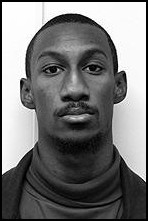“Perhaps that is the greatest problem that black students face … they are never asked to create, only to imitate.” –Stokely Carmichael, Morgan University (1967)
The University of Louisville debate team is no mere academic club. It is a movement. Conceived by Dr. Ede Warner, the “Louisville Project” receives the same reaction most movements do when challenging pillars of Western thought: ultimate resistance.
Originally perceived as a nonsensical effort to once again cry foul at “the Man,” the squad’s national victories and real-world engagements have pressured other teams to seriously reexamine their model of debate. Since then the cries of illegitimacy have slightly eroded. I emphasize slightly, like any movement to expand inclusion backlashes are mandatory, fierce, and in some instances bizarre.
Unfortunately,s most media coverage of the team has centered on the typical abbreviated race melodrama of mostly inner-city black students confronting 95 percent white, usually Ivy League teams. Rarely discussed are the ideas that Louisville exports and how the University of Louisville, although anchored by conservatism institutionally, houses one of the most radical intellectual movements functioning today.
Unfortunately, descriptions of black radical intellectuals and their production are lacking. Michael Walzer in “The Company of Critics” says radical black intellectuals can be identified by their consistent “political censure, moral indictment, skeptical question, satiric comment, angry prophecy, [and] utopian speculation.” Walzer’s description grasps the Louisville model. However, further study reveals the debate team belongs to a larger movement in league with thinkers who scholar Anthony Bogues describes as heretics, like W.E.B. Du Bois, Ida B. Wells-Barnett, Walter Rodney and Anna Julia Cooper, just to name a few.
“First,” Bogues states, “is the sense of challenging orthodoxy.” Many of the Louisville debaters originally accepted the traditional model but eventually discarded it altogether. “Traditional debate excludes blacks,” said Stephanie Mitchell, who was a traditional debater at her Chicago high school. Herded into Urban Debate Leagues, African-American debaters rarely compete with their white counterparts and have distinctively separate and unequal experiences.
After challenging the orthodoxy, intellectual heretics, according to Bogues, develop a “constructive project … a different set of political and social categories.” For the Louisville team, its construction and application is an alternative model known as the three-tier process:
1. Traditional evidence: from accredited authors and information based in academia.
2. Organic intellectuals: members of aggrieved communities who challenge the dominant structure with counter-hegemonic discourse.
3. Social location: your personal experience in relation to the topic.
Using the three-tier process the squad has confronted the Birmingham, Ala. of academia with a booming analysis that the model of debate, not black intelligence, are barriers to an inclusive debate community by forging its own version of debate thus rejecting a replica in blackface. Stokely would be proud.
Phillip M. Bailey is a junior double-majoring in Political Science and Sociology, Chair of the U of L
SNCC and is a columnist for The Cardinal.
E-mail him at: [email protected]






